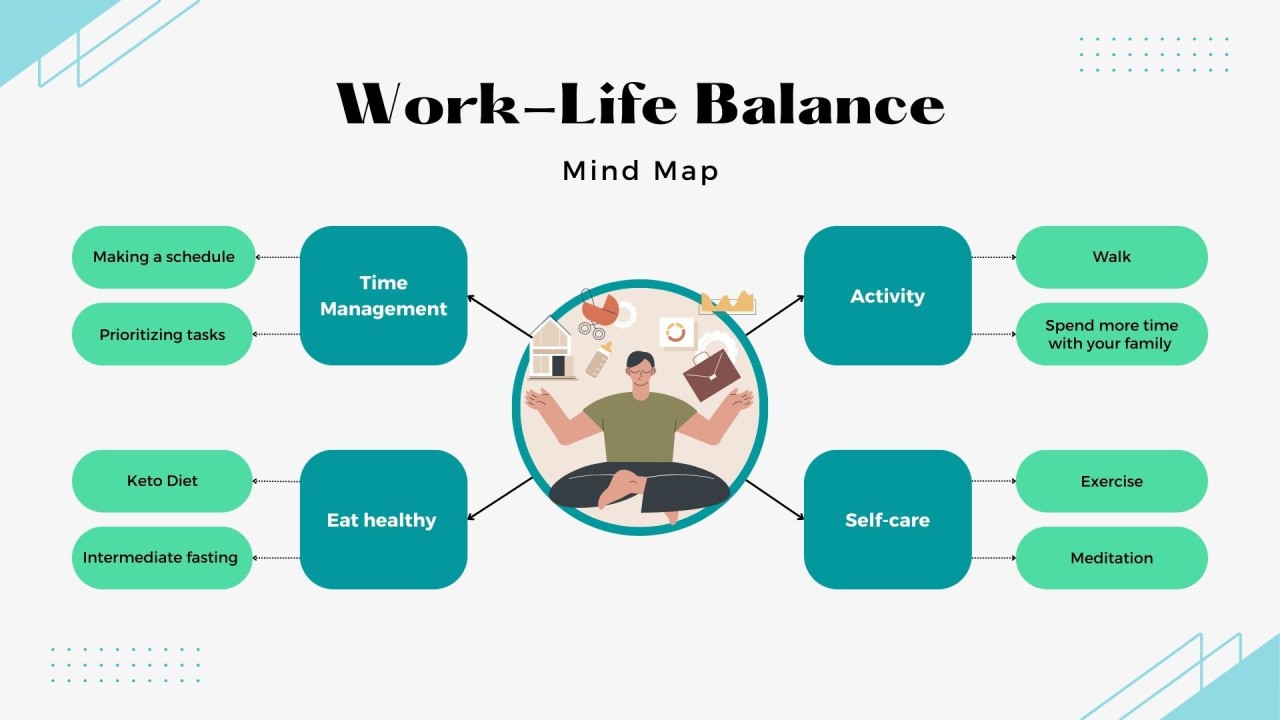Creating a balanced lifestyle can significantly enhance your overall well-being. With the right approach, you can manage your time, health, and relationships effectively. Here are some tips and tricks to help you achieve a harmonious life.
Prioritize Your Health
Eat a Balanced Diet
A balanced diet is crucial for maintaining energy and focus. Incorporate a variety of fruits, vegetables, lean proteins, and whole grains into your meals. Avoid processed foods and excessive sugar.
Exercise Regularly
Regular physical activity helps maintain a healthy body and mind. Aim for at least 30 minutes of moderate exercise, such as walking or cycling, five days a week. Exercise not only boosts physical health but also improves mental clarity.
Get Enough Sleep
Adequate sleep is essential for recovery and productivity. Strive for 7-9 hours of sleep each night. Establish a bedtime routine to help your body wind down and prepare for rest.
Manage Your Time Wisely
Set Clear Goals
Clear goals provide direction and purpose. Define what you want to achieve daily, weekly, and monthly. Break larger goals into smaller, manageable tasks. This approach makes it easier to track progress and stay motivated.
Create a Schedule
A well-structured schedule helps manage your time effectively. Use a planner or digital calendar to allocate time for work, exercise, meals, and leisure. Stick to your schedule as closely as possible, but allow for flexibility when needed.
Avoid Procrastination
Procrastination can derail your plans and increase stress. Tackle tasks as soon as possible, especially those you find challenging. Use techniques like the Pomodoro Technique to maintain focus and productivity.
Foster Healthy Relationships
Communicate Effectively
Effective communication is key to healthy relationships. Listen actively and express your thoughts clearly. This practice helps prevent misunderstandings and strengthens connections with others.
Spend Quality Time
Quality time with loved ones enhances your emotional well-being. Make time for family and friends, even if it’s just a quick phone call or a casual coffee date. These interactions provide support and joy.
Set Boundaries
Setting boundaries is essential for maintaining healthy relationships. Be clear about your limits and communicate them respectfully. Boundaries protect your time and energy, allowing you to focus on what matters most.
Maintain Mental Well-being
Practice Mindfulness
Mindfulness keeps you grounded in the present moment. Practice techniques like meditation or deep breathing exercises. These practices reduce stress and improve mental clarity.
Pursue Hobbies
Engaging in hobbies provides a creative outlet and relaxation. Whether it’s painting, reading, or gardening, hobbies enrich your life and provide a break from daily routines.
Seek Support
Don’t hesitate to seek support when needed. Talk to friends, family, or a mental health professional if you’re feeling overwhelmed. Support networks provide valuable perspective and encouragement.
Achieve Work-Life Balance
Set Priorities
Determine what’s most important in your life and allocate time accordingly. Balance work, family, and personal time to avoid burnout. Prioritizing helps maintain focus on what truly matters.
Learn to Say No
Saying no is a powerful skill. It helps prevent overcommitment and ensures you have time for essential tasks. Be polite but firm when declining requests that do not align with your priorities.
Take Breaks
Regular breaks during work enhance productivity and reduce stress. Step away from your desk, stretch, or take a short walk. Breaks refresh your mind and body, improving overall performance.
Embrace Continuous Learning
Read Regularly
Reading expands your knowledge and keeps your mind active. Choose books, articles, or blogs on topics that interest you. Regular reading fosters personal and professional growth.
Attend Workshops
Workshops and seminars offer opportunities to learn new skills. Look for events related to your interests or career. Continuous learning keeps you engaged and adaptable.
Network
Networking with others in your field provides valuable insights and opportunities. Attend industry events or join online forums. Building a professional network supports your growth and success.
In conclusion, creating a balanced lifestyle involves prioritizing health, managing time wisely, fostering relationships, maintaining mental well-being, achieving work-life balance, and embracing continuous learning. By implementing these tips and tricks, you can lead a fulfilling and harmonious life. Start today, and experience the benefits of a balanced lifestyle.



